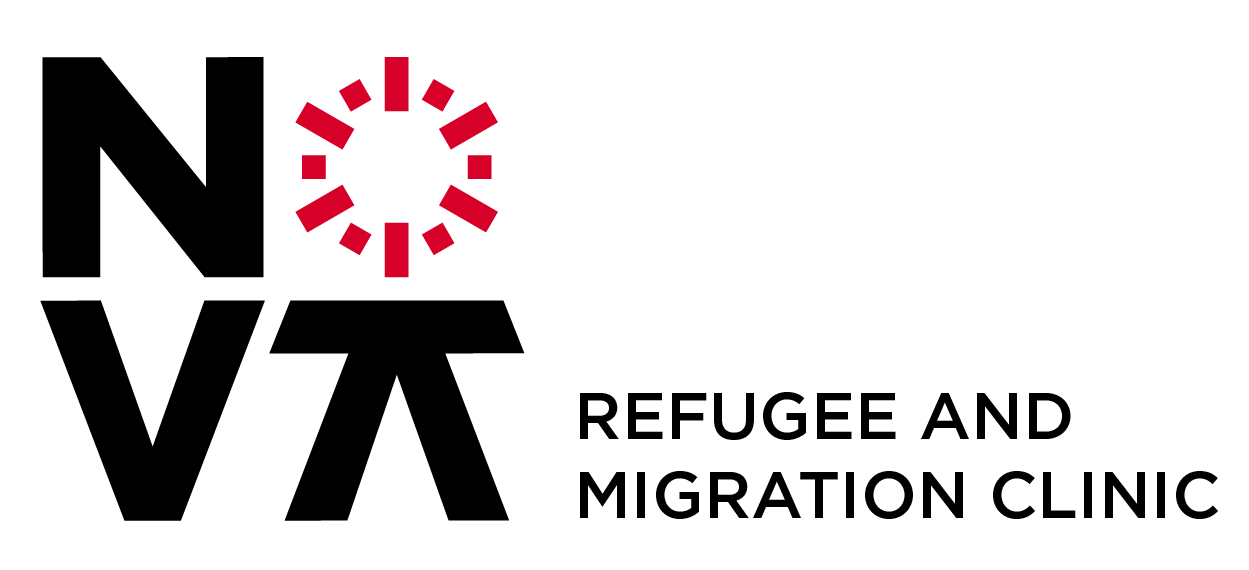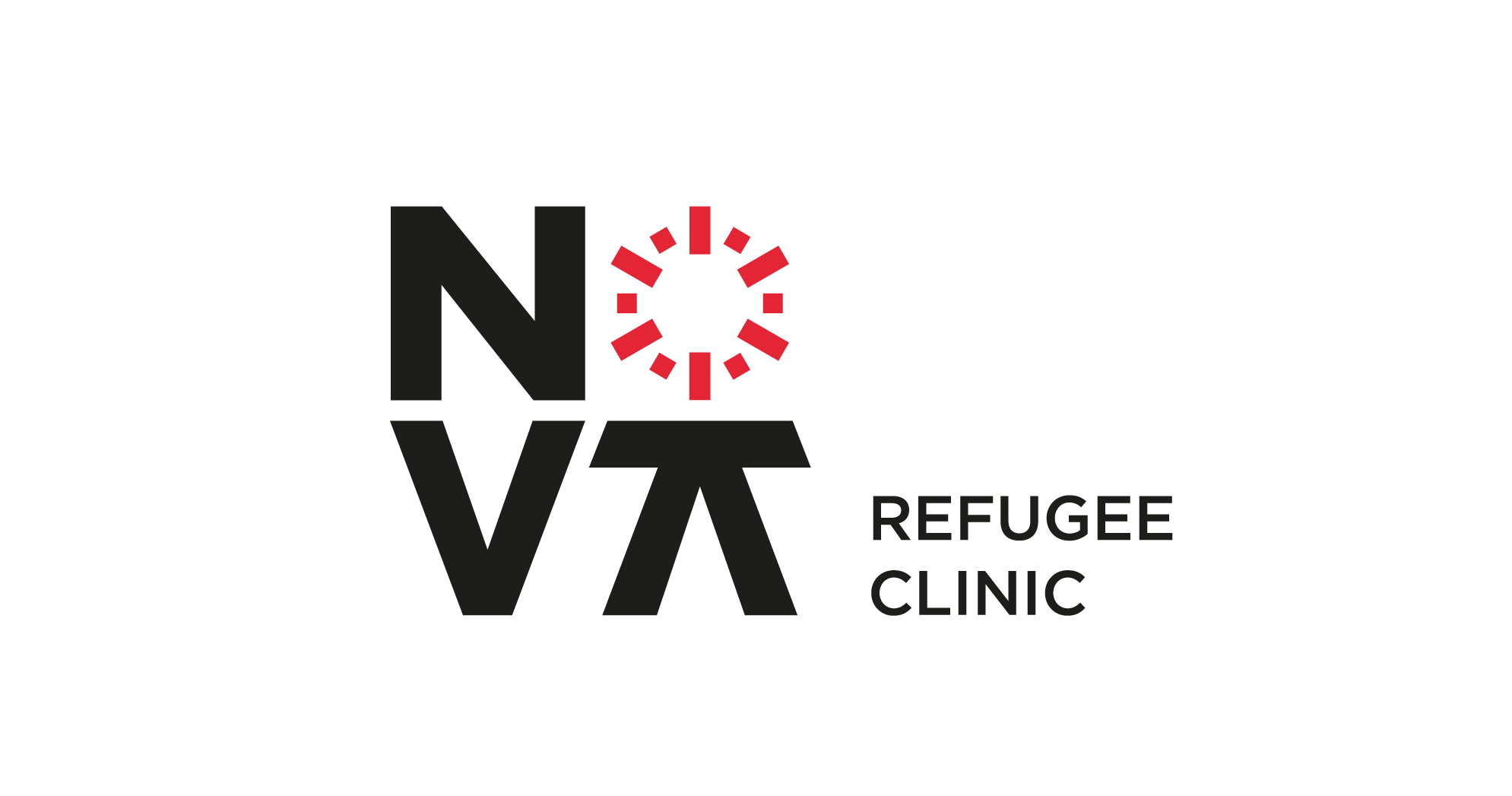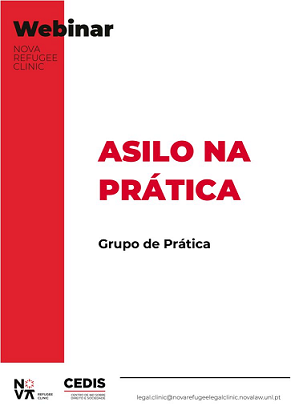Migration and Asylum Talks
 NOVA Refugee and Migration Clinic invites you to the final Migration and Asylum Talks Webinar of the year!
NOVA Refugee and Migration Clinic invites you to the final Migration and Asylum Talks Webinar of the year!
For this special session, we are honoured to host Professor Nuno Ferreira, an expert in asylum and human rights law from the School of Law, Politics and Sociology at Sussex University. Professor Ferreira will address the critical and timely topic:
Assessing credibility in SOGIESC Asylum Claims: European Comparative Findings
Despite concerted efforts by the UNHCR and other actors to raise awareness about the unique experiences of LGBTQI+ refugees and to counter harmful stereotypes, many asylum seekers face ongoing challenges. LGBTQI+ refugees are often met with suspicion, misunderstanding, and inadequate protection within asylum systems. As a result, countless individuals are denied refuge and risk being returned to communities where they face stigma, discrimination, and threats to their safety and lives.
Professor Ferreira will delve into the intricacies of credibility assessments in SOGIESC asylum claims, exploring how existing practices impact LGBTQI+ asylum seekers and what can be done to ensure fairer outcomes.

Unveiling the Tragedy: A Critical Discussion on Push-Backs in the Mediterranean
On June 14, 2023, the Adriana, an overcrowded trawler carrying over 600 individuals, tragically sank in the Mediterranean. Despite being under the surveillance of the Greek Coast Guard, this catastrophic event was not averted. Was this a failure of due diligence in maritime rescue operations, or does it point to a covert push-back attempt, as survivors claim yet the Greek authorities firmly deny? Moreover, what is the role of Frontex in such incidents, and how does it intersect with allegations of systemic misconduct at Europe’s borders?
One year later, the BBC documentary Dead Calm: Killing in the Med (June 2024) revisits this tragedy in the context of broader practices at the EU’s external frontiers. Through groundbreaking investigative journalism, the documentary exposes push-backs—a practice long decried by victims and NGOs—as systematic and concealed violations of international law. For the first time, Dead Calm captures irrefutable footage of push-backs in action, offering unprecedented insights into the realities at sea.
To delve deeper into these pressing issues, NRMC is honoured to host Dimitrios Koros, Adjunct Lecturer at Hellenic Open University and an expert in border and detention monitoring with over a decade of experience. This discussion will critically examine the legal, ethical, and practical dimensions of push-backs in the Mediterranean, exploring their implications for human rights, state accountability, and EU migration policy.
 We are pleased to announce the launch of RIseEU (Key Fundamental Rights Issues in the European Union), a Jean Monnet Module that will be held at NOVA School of Law under the direction of Veronica Corcodel, Assistant Professor at NOVA School of Law and director of NRMC. The project is a research-based 72-hour teaching programme that seeks to provide a comprehensive assessment of the key fundamental rights issues in the main areas of EU action, with an in-depth analysis of migration and asylum.
We are pleased to announce the launch of RIseEU (Key Fundamental Rights Issues in the European Union), a Jean Monnet Module that will be held at NOVA School of Law under the direction of Veronica Corcodel, Assistant Professor at NOVA School of Law and director of NRMC. The project is a research-based 72-hour teaching programme that seeks to provide a comprehensive assessment of the key fundamental rights issues in the main areas of EU action, with an in-depth analysis of migration and asylum.
To mark this occasion, we warmly invite you to attend the NOVA Refugee and Migration Clinic Talk on “The Role of Clinical Legal Education in Addressing Key Fundamental Rights Issues in the EU” with Veronica Corcodel. We are delighted to have Jeremy Sarkin, Distinguished Research Professor at NOVA School of Law, join as the discussant.



On May 14, 2024, the Council adopted the New Pact on Migration and Asylum, breaking an almost eight-year deadlock over reform proposals. With the adoption of ten legislative acts, this reform has been described as a “complete overhaul of the EU asylum and migration system” (Council of the EU, Press Release 2024). Civil society actors have expressed numerous concerns over its implications for the rights of migrants, asylum seekers, and refugees.
Taking place just a few days after the European parliamentary elections and one day after the World Refugee Day, this roundtable aims to generate an insightful and timely debate on the challenges and opportunities posed by the new system. The event will bring together academics and representatives from international and non-governmental organizations to discuss the critical issues and potential impacts of this reform, incorporating perspectives from the Portuguese context and beyond.
The event is hosted by the NOVA Refugee and Migration Clinic. It is free and open to everyone, but registration is required.

This month’s Migration and Asylum Talks Seminar features Giulia Raimondo, who will present her book ‘ The European Integrated Border Management: Frontex, Human Rights, and International Responsibility’.
Giulia Raimondo is a postdoctoral researcher at the University of Luxembourg, Faculty of Law, Economics and Finance and invited lecturer at the University of Fribourg, Chair of European and Migration Law. Her research interests lie in public international law, international migration law, and legal philosophy. She is especially interested in the interconnections between international human rights law and refugee law. Giulia completed her PhD in International Law (summa cum laude) at the Geneva Graduate Institute. Her doctoral thesis examined the international responsibility of the EU and its member states for potential human rights violations during the implementation of the European integrated border management. Her thesis was awarded the 2022 SSDI prize for best thesis in public international law.


Other Activities

We’re excited to announce a pilot short reading cycle titled “Power, Sovereignty, and (Im)Mobilities.” This series will create a unique space for exploring and discussing the relationship between power, sovereignty and (im)mobile lives by engaging with critical and influential works on the topic.
About the Reading Cycle: Join us as we dive into the works of critical thinkers such as Hannah Arendt, Achille Mbembe, Michel Foucault, and others. Together, we’ll examine how power and sovereignty, as constructed by legal and policy frameworks, shape (im)mobilities and the individual lives of migrants and asylum seekers. Each session will feature dynamic discussions and critical analysis.
Why Participate?
- Gain fresh perspectives on legal and human rights issues that impact real lives.
- Engage with influential philosophical works in a collaborative setting.
- Join a community of curious minds committed to critical thinking on power, sovereignty and (im)mobile lives and reflect on systemic challenges.



